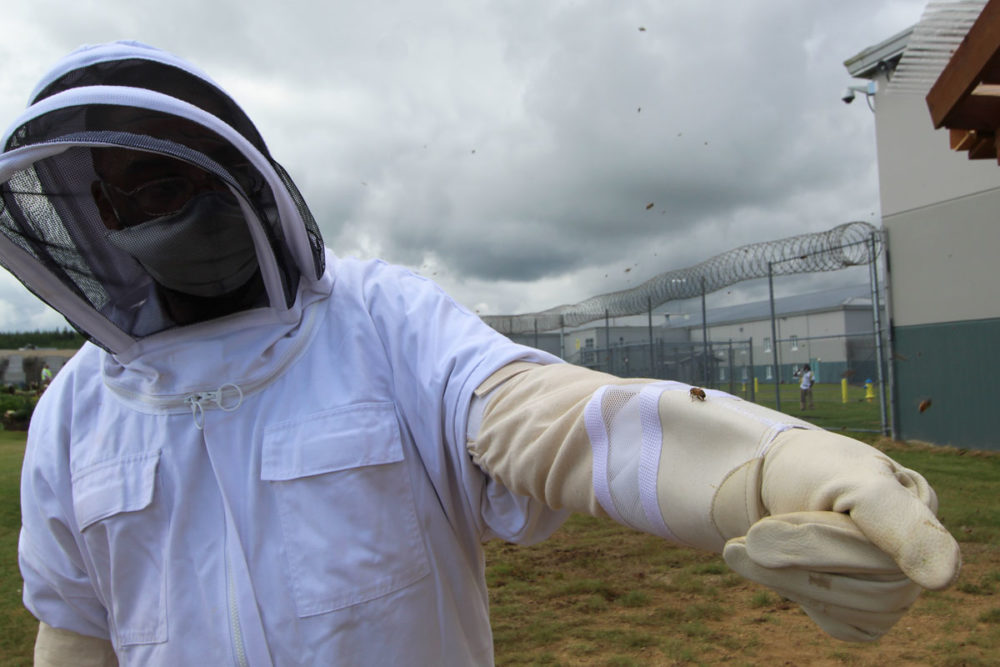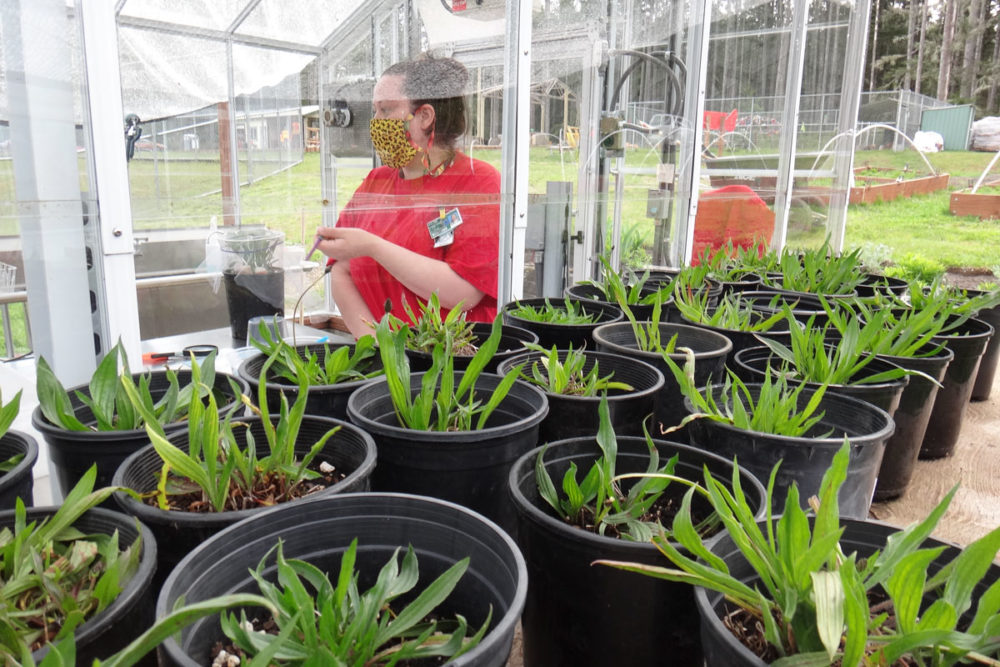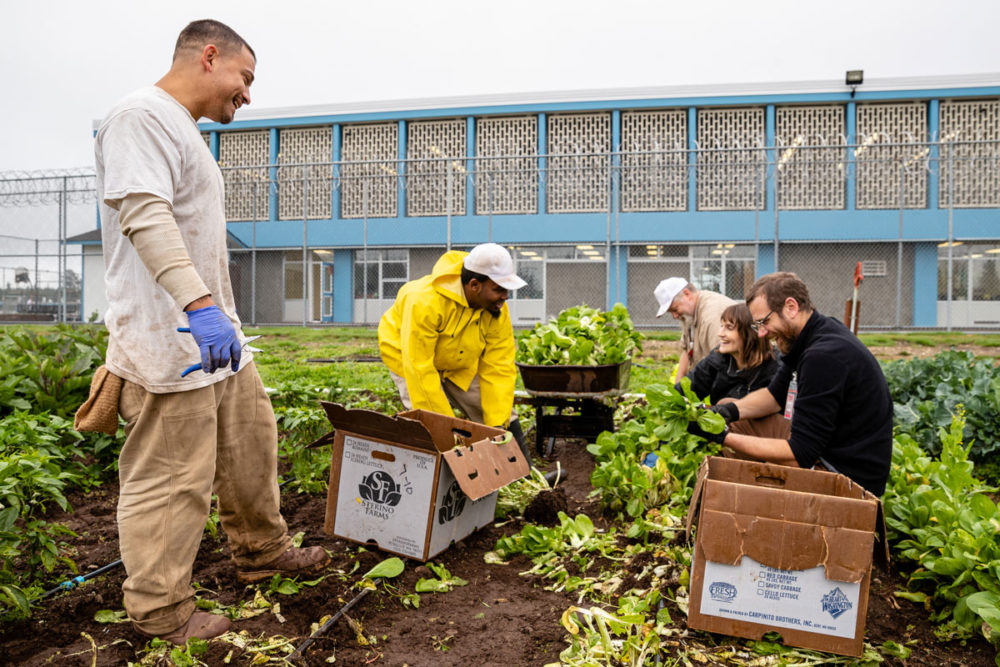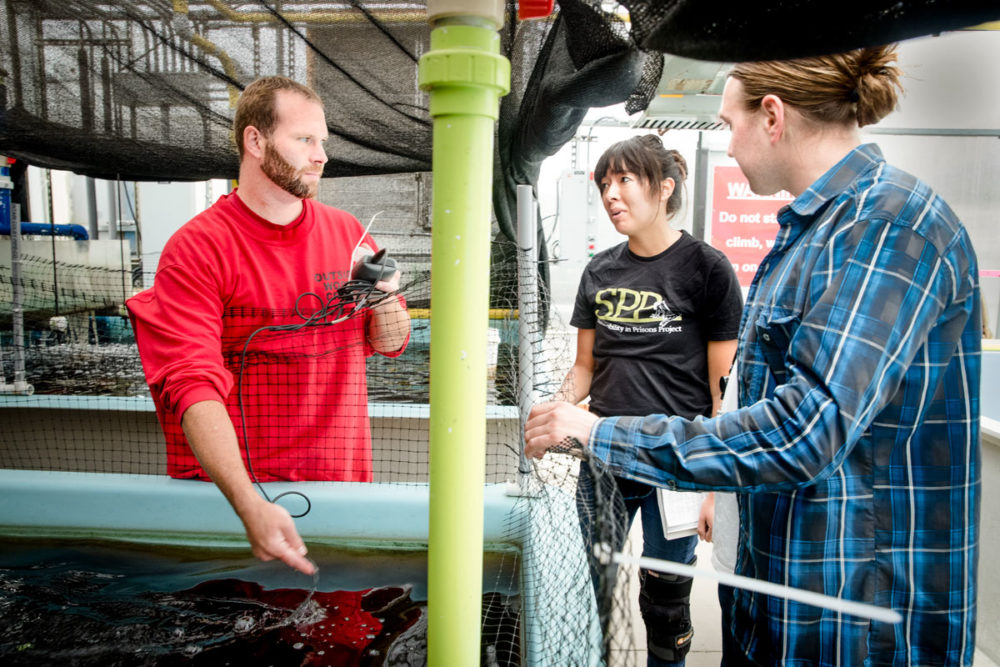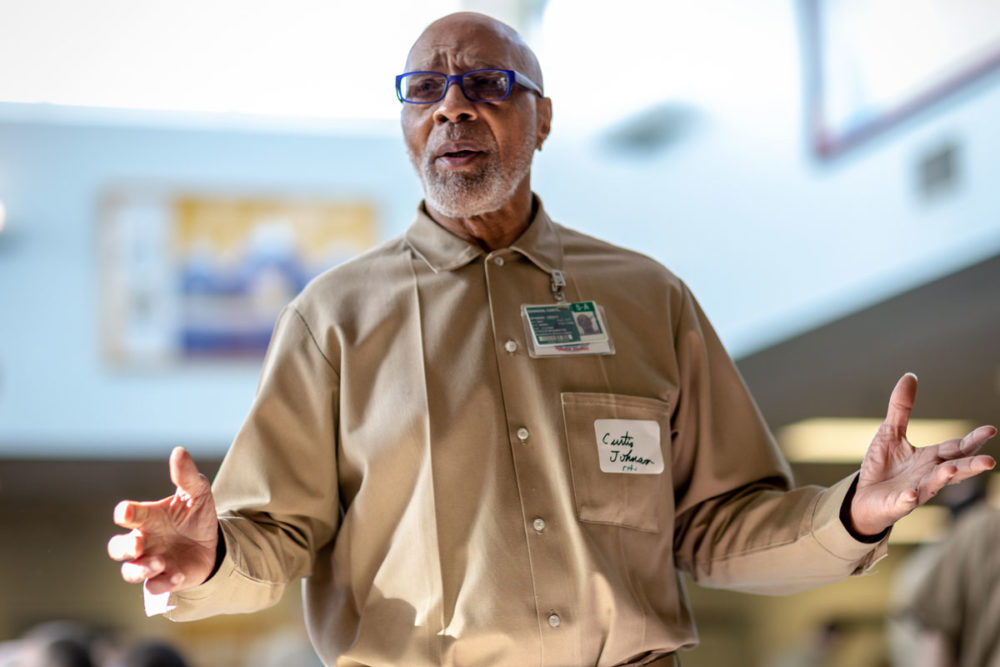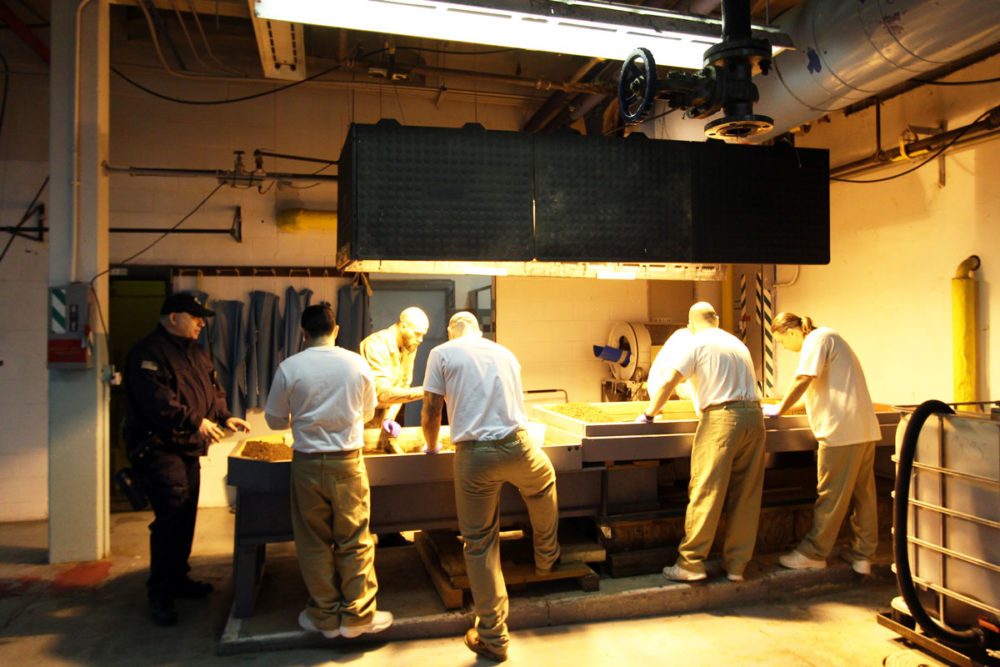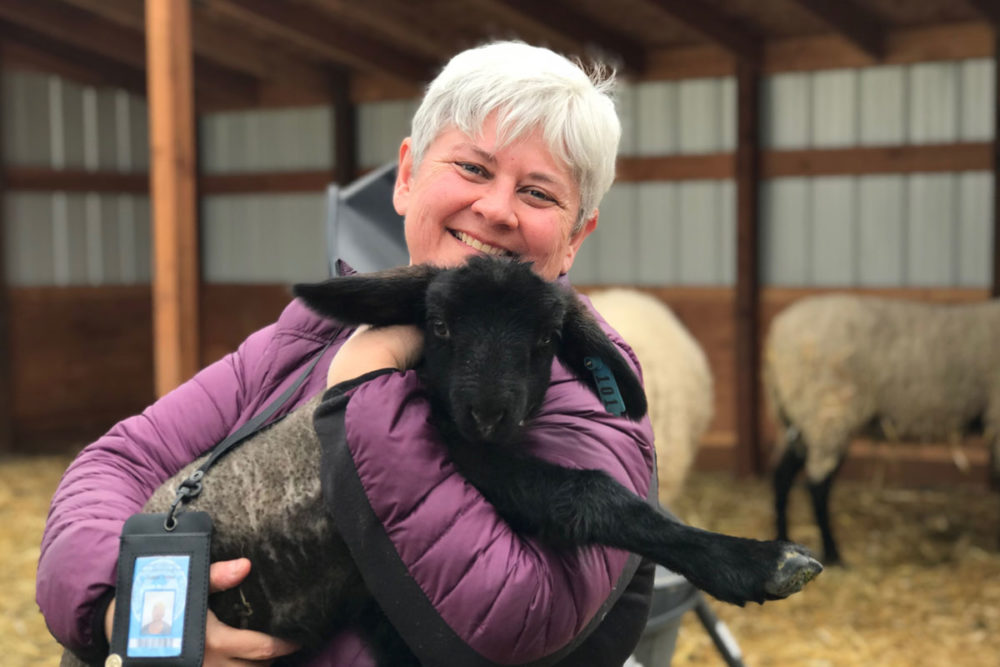We empower sustainable change by bringing nature, science, and environmental education into prisons.
Values
collaborate * learn * cultivate * grow * thrive
What that looks like
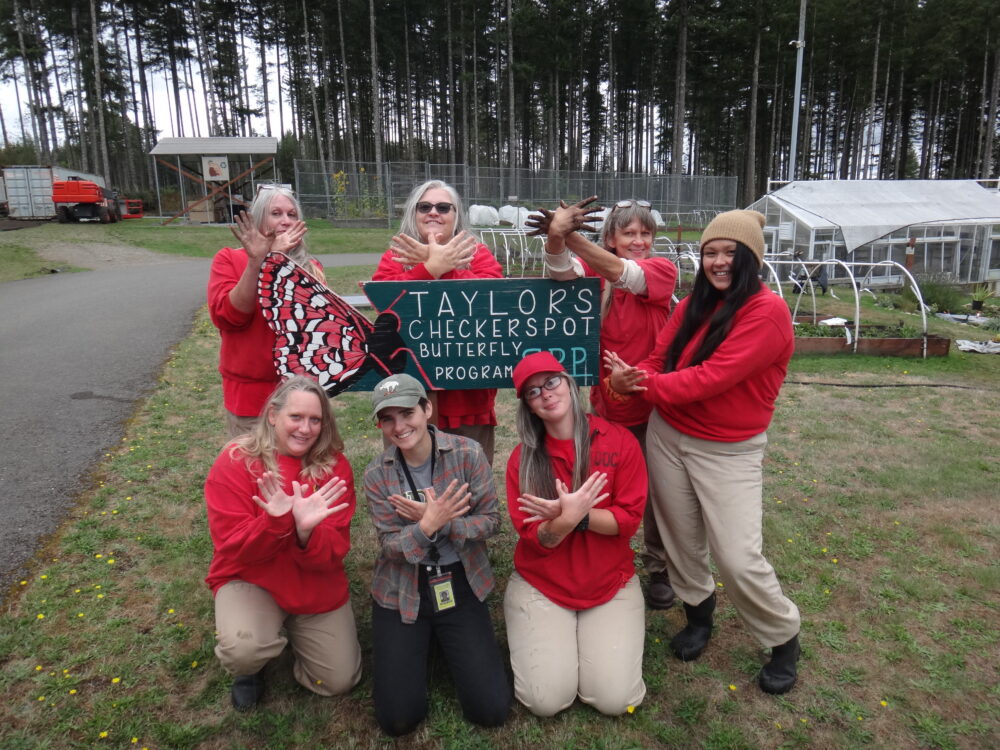
The Sustainability in Prisons Project (SPP) is a partnership founded by The Evergreen State College and Washington State Department of Corrections. With vital input from many additional partners, we develop and deliver a wide range of science, sustainability and environmental education programs in all 11 Washington state prisons.
Highlights include:
- Now available for download! Our 2024 annual report.
- In 2024: 82 students earned a total of 746 college credits from The Evergreen State College through SPP programs. Almost all Evergreen led SPP programs are credit bearing.
- SPP restarted science and sustainability workshops in multiple prisons in 2024! Some events were open to large audiences while others focused on smaller groups in specific programs. Topics included gardening, climate change, composting, and nature drawing. With donor support, we are rebuilding, improving, and expanding our workshop model.
- Since 2011, butterfly technicians (incarcerated people) and partners raised over 60,000 federally endangered butterfly larvae at Mission Creek Corrections Center for release onto the Salish lowland prairies. Technicians presented program results to scientists at the Butterfly Recovery Working Group meeting hosted at Evergreen and also visited a butterfly release site with WA Dept. of Fish and Wildlife to learn about prairie ecosystems.
- SPP collaborated with gardeners and educators (incarcerated people), community partners, and DOC staff to improve gardening education and access to fresh produce. SPP purchased supplies for programs statewide including books, compost, tools, raised beds and more. Combined, all prisons grew about 284,800 lbs. of produce, with approximately 110,399 lbs. donated to food banks.
- In partnership with composting technicians (incarcerated people) and WCC staff, we advanced development of composting education and training. Efforts include composting workshops with external guests, networking meetings with state agencies, and co-creating new composting vocational education manuals. These manuals will be offered to support education and training in prison composting programs statewide.
- Beekeeping programs continue to be popular in Washington state prisons. 10 of 11 prisons have active beekeeping programs with all including formal beekeeping education.
- A new Sagebrush Education and Training Program began at the Washington State Penitentiary. With funding support from Washington Department of Fish and Wildlife (WDFW), participants grew and delivered nearly 60,000 sagebrush plants, participated in a new credit-bearing education and training course, and advanced planning for a new sagebrush seed orchard and nursery.
- SPP’s Taylor’s checkerspot butterfly program produced a record number 11,748 federally endangered larvae. Since 2011, program partners have reared more than 57,000 caterpillars and adult butterflies for release onto south Salish lowland prairies.
- SPP began a new collaboration with the Tribal Sons, a Native American culture group at WCC. Additional partners include Evergreen faculty, WCC staff, and other tribal leaders. Together we offer workshops, education, and support native plant cultivation.
- In 2023, partners grew more than 130,800 lbs. of fresh produce. Around 11,000 lbs. were used in facility kitchens.
- In 2024, all prisons converted a combined total of 1,666,199 lbs. of food waste into usable compost.
- Almost all facilities have Dog and Cat Programs in Washington State. In 2024, Coyote Ridge Corrections Center had 81 dogs graduate from the program.
“I never did well in school and my skills were more on the manual labor side. While I was incarcerated at Cedar Creek Correction Center in 2015 thru 2018 I was given the opportunity to discover that I was wrong.”
Darin Armstrong, former SPP conservation technician
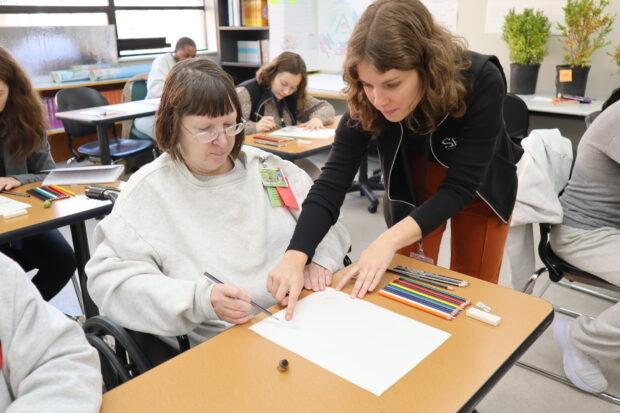
SPP Coordinator Anneke Wilder provides some feedback during a Nature Drawing workshop. Photo by Emily Passarelli.
“What does science mean to me? Science is the study of the world around us… I would not want to experience life without science.”
Morris Talaga, SPP conservation nursery teaching assistant
Read about what SPP is & isn’t.
Vision
In response to the dual crises of ecological degradation and mass incarceration, we aim to reduce recidivism while improving human well-being and ecosystem health. SPP brings together incarcerated individuals, scientists, corrections staff, students, and program partners to promote education, conserve biodiversity, practice sustainability, and help build healthy communities. Together, we reduce the environmental, economic, and human costs of prisons.
